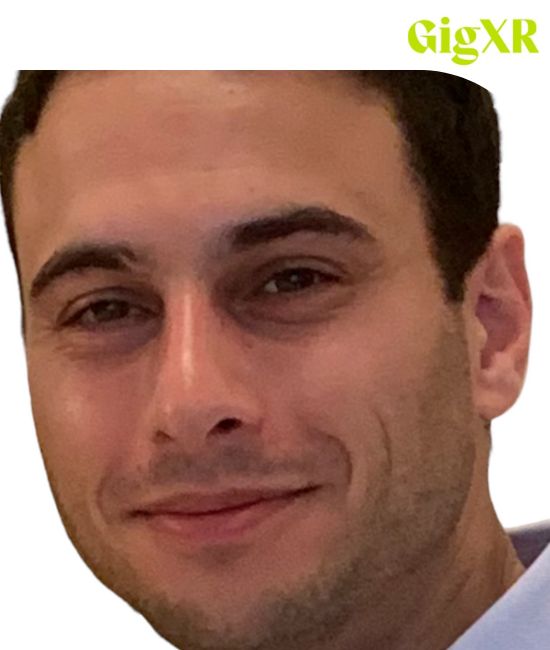10:30 AM - 10:55 AM
Description
Stellantis and have been creating new VR training programs to transform the effectiveness of their workers in concert with the UAW.
Virtual Reality training is perfectly suited to the complex Stellantis manufacturing environment. One of the main aims of their training is to reduce to zero the danger of personal accidents and expensive mistakes. VR allows for highly realistic simulation training, that is deeply engaging for learners.
The goals of the VR training program are:
• Improve training outcomes for workers
• Improve safety, quality and proficiency of workers
• Ultimately they want to use AR / VR to improve production outcomes
• drive proficiency, efficiency and quality
• create real time manufacturing aids
Umajin have created a powerful VR / AR Authoring platform, that significantly reduces the cost of content creation. It provides:
• 3D content pipeline to make it easy to bring in existing assets. With the NVIDIA Omniverse tools the 3D models can be imported from the live manufacturing data from the Siemens CAD systems.
• It allows for multi participant scenarios
• Accurate tracking of people, tools and props within the VR environment
• LMS integration
• After action review
Speakers

Related Sessions
11:30 AM - 11:55 AM
Description
Join us to explore the exciting possibilities of the convergence of VR and eye-tracking technologies and discover how they can be harnessed to understand human conditions and develop groundbreaking solutions. Driving or working while impaired by drugs puts lives at risk. With the legalization of cannabis in many states, the need for reliable impairment detection technology has never been more critical. In this presentation, you will learn how Gaize is pushing the boundaries of innovation by using cutting-edge VR and Tobii eye-tracking technologies to develop a non-invasive, automated, and rapid impairment detection device that is significantly more accurate than even the best-trained humans.
Speakers


01:25 PM - 01:50 PM
Description
Our current landscape is filled with promising, yet disjointed technologies, each showcasing their incredible potential. But when we merge AI + XR, we open doors to a future of learning never before imagined. This talk will delve into the exciting fusion of immersive, adaptive learning environments powered by AI-driven avatars. Envision a world where we finally have the tools for true personalized learning, continuous real-time assessment, tailored career development, and secure credential verification. The opportunities are limitless for those looking to build a groundbreaking future for learning. Be a part of this revolutionary journey.
Speakers

02:00 PM - 02:25 PM
Description
Analog simulation is broadly accepted in healthcare. Given the high costs of building and running a simulation center, facilities are generally in developed nations’ urban centers.
XR is fundamentally changing the dynamic: Learners are accessing expertise around the world in the mediverse. Traditional educational institutions are able to share their best practices in new and exciting ways.
The results? It should be more well trained healthcare institutions in more places around the world leading to better outcomes for patients globally.
Speakers


02:30 PM - 02:55 PM
Description
Hear how PwC is experimenting with the metaverse and implementing these new technologies into the workplace – to bring teams together, connect employees across the globe, and create a shared sense of culture across their entire organization.
Speakers


03:00 PM - 03:25 PM
Description
Delta Air Lines is the U.S. global airline leader in safety, innovation, reliability, and customer experience. Powered by its employees around the world, Delta has, for a decade, led the airline industry in operational excellence while building on its reputation for award-winning customer service.
Creating a safe environment for its employees and customers is one of Delta's top priorities. As such, it is imperative that new employees go through rigorous training to do their job safely and effectively to achieve the high-quality service that Delta is known for.
This talk delves into the benefits and challenges of using a virtual reality first design approach for creating interactive training simulations. We explore the advantages of utilizing VR technology to enhance learning and development and how designing with full VR interactivity in mind leads to more effective training outcomes. We will then discuss the impact of adding moderator capabilities into an iPad companion app to enhance the experience for the person in virtual reality and test their skills at a higher level.
Find how Delta identified the intended means of distribution and deployment, as well as the process for determining if WebXR (desktop version of the VR simulation) is a viable solution. We will share the process of adapting the virtual reality simulations for use on desktop platforms to increase accessibility for a wider audience while still preserving immersion. The presentation will cover topics such as the process of designing simulations that are both immersive and effective and the technical considerations involved in adapting VR simulations for use on desktop platforms.
This session will leave attendees with the following takeaways:
• Deeper understanding of how to design and develop training simulations that take full advantage of the unique capabilities of VR technology
• Benefits of intentional design
• How to translate VR simulations to other platforms for maximum reach and impact
• Considerations for prototyping and production before you start your own project
• Technical considerations for designing simulations that can be used in both virtual reality and desktop environments
Speakers

